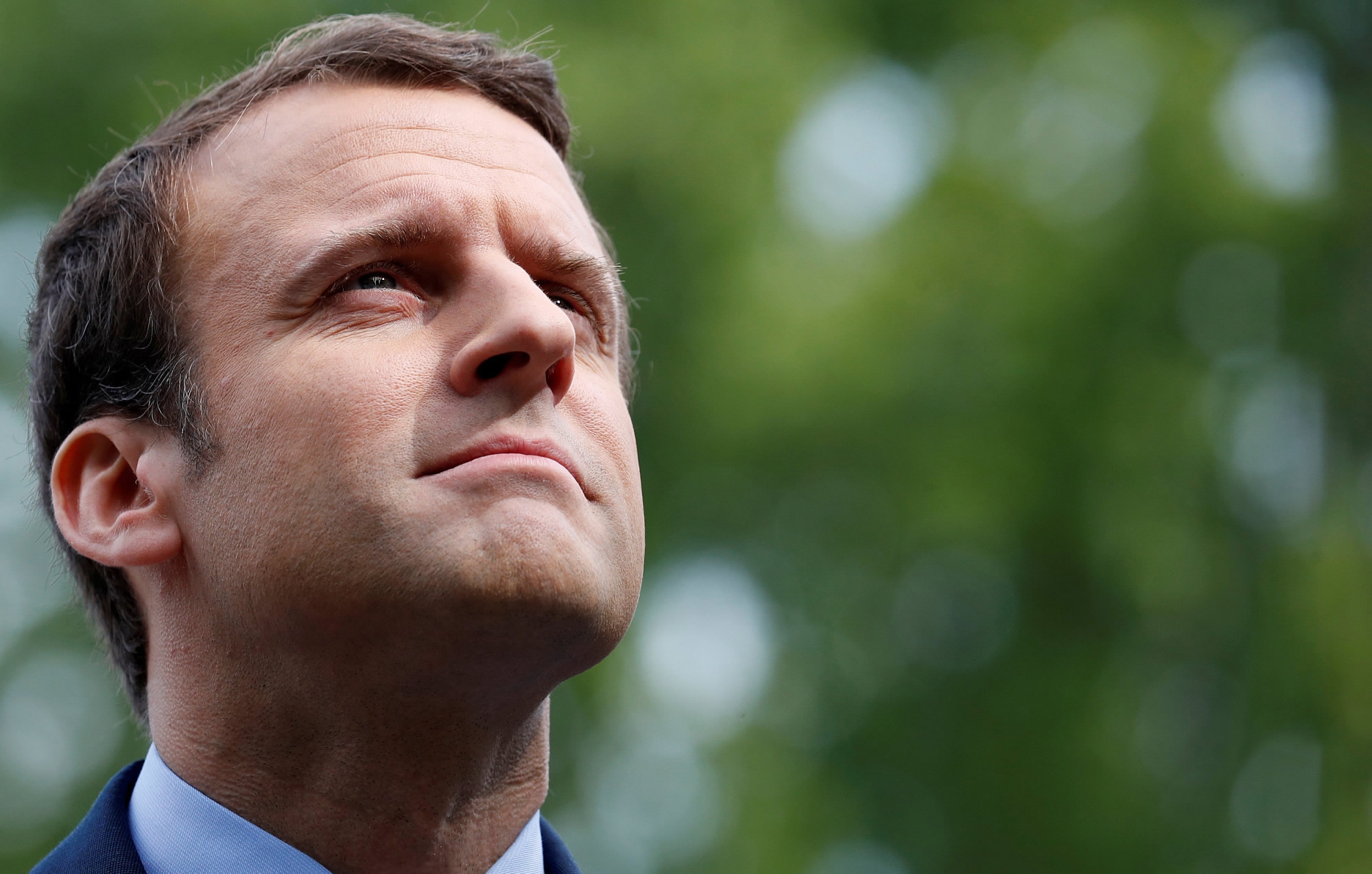Guest commentary by Zhou Tanhao
The first round of the French presidential election was held on April 23, with 11 candidates competing fiercely. Numbers from the national preliminary results show that independent candidate Emmanuel Macron (23.9 percent of the votes) and far-right Front National candidate Marine Le Pen (21 percent of the votes) won the top two places, and qualify for the second round of voting.
What is most noteworthy about the first round is, the traditional left and right lost “control” of the presidential election for the first time since the founding of France’s Fifth Republic, with even the ruling party candidate Benoît Hamon getting less than 7 percent of the vote.
In fact, this result is not an accident. Since the winter of last year, François Fillon and Benoît Hamon have both played a dramatic reversal in their parties’ primaries, and eliminated several popular candidates, such as former President Nicolas Sarkozy, former Prime Minister Alain Juppé, former Prime Minister Manuel Valls and former Minister of the Economy Arnaud Montebourg. It shows that the French people increasingly favored “relative outsiders”. Macron and Le Pen’s victories are also a continuation of this trend.

Emmanuel Macron, head of the political movement En Marche, or Onwards, and candidate for the 2017 French presidential election, attends a ceremony in Paris, France, on April 24, 2017. / CFP Photo
As we all know, France was hit hard by the 2008 financial crisis. From then on, the traditional right and left have come to power respectively, but both have been ineffective.
Even worse, the problems have continued to spread to other areas. More than 80 percent of French people are “very disappointed” with the traditional political elites, according to recent research by Sciences Po.
At this crucial moment, both mainstream parties, the Socialist Party and the Republicans, seem to be descending into quarreling factions, forming a number of “power centers”. In particular, after Macron left the Socialist Party, many current senior figures in the party, including François Hollande and Manuel Valls, endorsed Macron, regardless of the fact that Hamon was the only official candidate for the party.
Also when Fillon was caught in a scandal during the campaign involving charges of nepotism, fellow party member Sarkozy took the opportunity to threaten him, and some party members even suggested he should be replaced.

French presidential election candidate for the far-right Front National (FN) party Marine Le Pen waits before an interview on the set of the France 2 TV channel on April 24, 2017 in Paris. / CFP Photo
The chaos within the traditional parties further boosts the political fragmentation, and Macron and Le Pen, who are better at articulating the people’s thoughts, successfully grabbed the initiative.
Macron puts forward a “left-right balanced reform”, which seeks to combine the advantages of left and right, to take into account “efficiency” and “fairness”. At the same time, Le Pen advocates a “non-left-non-right” populist program. Moreover, different from the heavy idealist Hamon or Mélenchon, Fillon, Macron and Le Pen proposed detailed measures on the issues that most concern French people, for example, employment, immigration and social order.
After Fillon’s personal image was severely damaged, Macron and Le Pen naturally become voters’ sub-optimal choices.
Speaking of personal image, it should be noted that most French people have a “leader dream”, hoping for a perfect president, especially in terms of morality. However, in reality, it is difficult for French politicians to escape corruption scandals or malfeasance.
The French presidential election this year has taken place under the shadow of some candidates’ scandals or rumors. Importantly Macron has only been a politician for five years and therefore does not have a history that can haunt him.
As for Le Pen, she has been criticized by the French press for many years, so although corruption scandals involving fraudulent allowances from the European Parliament have surfaced, she only suffered limited damage from “yet another” mainstream media attack on her.
Although the final winner still remains unknown, we can imagine that no matter who becomes president, it will mark the beginning of a new era in French politics.
(Zhou Tanhao, Assistant Research Professor, Institute of European Studies, China Institutes of Contemporary International Relations. The article reflects the author’s opinion, not necessarily the view of CGTN.)









